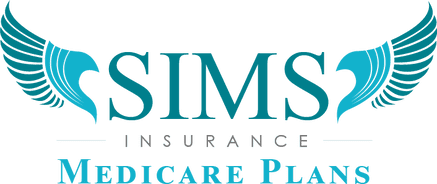Medicare Advantage Plans provide comprehensive medical and hospital coverage for seniors as an alternative to Original Medicare. However, not everything is covered. There are some important exclusions and limitations to understand when evaluating Medicare Advantage Plan options to avoid surprise costs. This article will explore what services are not included or have restricted coverage under Medicare Advantage.
Medicare Advantage Plan and Excluded Services
Medicare Advantage Plans are offered by private insurance companies approved by Medicare to provide coverage. They include options like HMOs, PPOs, and private fee-for-service plans. Medicare Advantage must cover everything that Original Medicare Plans does under Part A and Part B. However, the plans are allowed to restrict or exclude some services such as drug plan. The purpose of this article is to outline the key types of care that are either excluded entirely or have limited coverage under Medicare Advantage Plans. Understanding these limitations allows you to evaluate plan differences and anticipate potential out-of-pocket expenses.
Clinical Trials
Participating in a clinical trial for a life-threatening disease can provide a treatment option when other therapies have failed. However, routine costs for clinical trials are not covered services under Medicare Advantage Plans. If you participate in an approved clinical trial for a condition like cancer that meets Medicare criteria, the plan will not pay for any services or items provided solely for the trial. These excluded costs could include doctor visits, hospitalizations, tests, and drugs related to the trial. You would be responsible for any routine care costs not covered by the clinical trial’s sponsor. With Original Medicare, these clinical trial costs would be covered. But under Medicare Advantage, you may incur significant expenses not covered.
Hospice Care Services
One required covered service for Medicare Advantage Plans is hospice care for terminally ill enrollees. If you qualify for Medicare hospice and elect to receive this end-of-life care, your Medicare Advantage Plan must cover the hospice services. Coverage will be provided according to Medicare coverage guidelines just as if you had Original Medicare.
The Medicare Advantage Plan would continue covering your services and care unrelated to your terminal prognosis while the designated hospice provider manages your end-of-life services.
One exclusion could be limited out-of-network coverage if your hospice provider is not part of your Medicare Advantage Plan’s contracted network. But in general, hospice is a protected benefit that must be covered according to Medicare rules even under Medicare Advantage.
Emergency Care and Urgently Needed Services
Medicare Advantage Plans must pay for emergency department services no matter where you are in the world. If you receive emergency care, your plan cannot require prior authorization and must cover services under the same rules as Original Medicare. However, coverage for urgent care services depends on your plan’s rules. Most plans require staying in-network for urgent care services like treatment for a sudden illness or injury that doesn’t quite rise to the level of a true emergency.
Using an out-of-network urgent care center could leave you with a large bill. You would have to pay the difference between the billed amount and what your Medicare Advantage Plan pays for the out-of-network urgent services. When possible, seek care from urgent care providers that participate in your plan’s network to minimize costs. But for true medical emergencies, you pay the same cost sharing regardless if the hospital is in your plan’s network or not.
Medically Necessary Services
One general coverage requirement for Medicare Advantage Plans is providing coverage for all services considered medically necessary that are covered under Medicare Part A and Part B. Each plan makes its own determination of medical necessity based on Medicare coverage guidelines. There is no standard universal definition. This means one Medicare Advantage Plan may determine a service is medically necessary while another plan may deem it unnecessary and not cover it.
Certain procedures and diagnostic tests often fall into this gray area. For services in question, plans can implement utilization management techniques like requiring prior authorization to determine medical necessity on a case-by-case basis. Without prior approval, you could be responsible for the full cost. When evaluating plans, ask for specific medical necessity and prior authorization requirements to avoid coverage gaps. Original Medicare generally places fewer restrictions around medical necessity determinations and prior approvals.
Non-Emergency Medical Transportation
Transportation to medical appointments and services is a major gap in Medicare Advantage coverage for many enrollees. Non-emergency medical transportation is usually excluded unless your specific Medicare Advantage Plan includes this as a supplemental benefit. That means services like ambulances for non-emergency hospital admissions or trips to the doctor would not be covered. You would need to arrange and pay for your own transportation. Some plans may cover or offer limited transportation services like reimbursement for a certain number of rides per year or transportation to plan-approved locations. But in general, you cannot count on your Medicare Advantage Plan paying for non-emergency medical transportation. With Original Medicare, you would also be responsible for routine transportation costs. But this is still a notable coverage gap for Medicare Advantage seniors who lack reliable transportation options in their area.
Routine Foot Care
Most routine foot care, like trimming nails and corns, cleaning calluses, or examining bunions, is excluded from Medicare Advantage Plans except for specific medical conditions affecting the legs and feet. Examples of routine foot care services that would not be covered include:
- Cutting or removal of corns and calluses
- Trimming, cutting, and clipping of nails
- Cleaning and preventive foot care when no localized illness or injury to the foot exists
However, if you have systemic diseases like diabetes that impact circulation and sensation in the lower limbs and feet, your plan’s coverage for podiatry services would align with Medicare guidelines. In that case, more frequent foot exams and trimming of nails to prevent foot ulcers and infections would be deemed medically necessary and covered. Make sure to disclose any underlying medical conditions affecting your lower extremities to your plan when seeking podiatry care so the proper medical necessity determinations can be made.
Vision Care Services
Routine vision care like eye exams and vision hardware are generally excluded services under Medicare Advantage Plans unless offered as a supplemental benefit. Typical vision exclusions include:
- Routine eye examinations for glasses and contacts
- Eyeglasses, frames, and contact lenses
- Eyeglass lens treatments like tinting or anti-reflective coating
- Refraction to determine needed lens correction
- Cosmetic lens add-ons like progressive lenses
However, Medicare Advantage Plans do cover medical conditions affecting the eyes just like Original Medicare. This includes medical exams for diagnosis and treatment of eye diseases like glaucoma, cataracts, macular degeneration. Cataract surgery and other procedures to treat eye illness or injury would be covered. But expect to pay out-of-pocket for routine vision needs like an annual eye exam and new eyeglasses. Some Medicare Advantage Plans offer extra vision benefits that may discount the costs of hardware and exams, but coverage is limited. Vision riders can also sometimes be purchased for additional premiums on some plans.
Dental Care
Perhaps one of the most frequent exclusions from Medicare Advantage Plans is coverage for dental services. Cleanings, oral exams, x-rays, fillings, dentures, and other routine dental care are generally not covered. Extractions and dental surgery may fall under the medical coverage if determined to be medically necessary by the plan, but you typically cannot rely on your Medicare Advantage Plan for dental services.
Some plans do offer preventive dental benefits like certain cleanings, exams, and x-rays as supplemental coverage. But major dental work would require paying out-of-pocket. Those desiring comprehensive dental insurance must purchase a stand-alone dental plan since both Original Medicare and most Medicare Advantage options exclude routine dental services. Choosing a Medicare Advantage Plan with some dental benefits can help offset costs, but still leaves gaps in coverage for many services.
Cosmetic Procedures
Any type of surgery or procedure performed purely for cosmetic reasons to improve appearance would not be covered by Medicare Advantage Plans. Examples include:
- Face lifts
- Nose reshaping
- Liposuction
- Botox injections
- Laser skin resurfacing
However, Medicare Advantage Plans follow Medicare guidelines for determining when reconstructive procedures are covered after illness or injury. This could include breast reconstruction after a mastectomy for cancer or surgery to minimize scarring or disfigurement from major trauma. Make sure your provider documents medical necessity for reconstructive procedures to ensure proper claim submission and coverage under your Medicare Advantage Plan. Discuss coverage details in advance for any procedure potentially deemed cosmetic or reconstructive to avoid unexpected costs.
Experimental Procedures and Technology
When Medicare makes national coverage determinations that label a certain procedure or technology as experimental or investigational, Medicare Advantage Plans also deny coverage for the experimental services just like Original Medicare. This could include some cutting-edge interventional techniques, medical devices, and diagnostic tests still undergoing clinical trials and FDA approval processes. E
ven if your doctor recommends an experimental therapy, your Medicare Advantage Plan cannot provide coverage until the procedure is deemed medically necessary and safe according to Medicare criteria and national guidelines. Your plan must inform you in advance if they deny coverage for an experimental procedure and provide an explanation of their determination based on Medicare’s coverage decisions. With both Original Medicare and Medicare Advantage, you are responsible for costs of any care deemed experimental.
Acupuncture
Acupuncture is a treatment option for pain management and other conditions that is typically excluded from Medicare Advantage Plan coverage. Most plans classify acupuncture as an alternative treatment and do not cover visits or services. A few Medicare Advantage Plans may offer limited acupuncture benefits for chronic low back pain or osteoporosis as supplemental benefits.
But in most cases, you cannot rely on your Medicare Advantage Plan to cover acupuncture treatment costs. Acupuncture would also not be covered under Original Medicare. It is wise to verify if a plan includes acupuncture benefits in its annual summary of benefits before enrolling since policies vary. Acupuncture can provide relief for certain conditions when conventional treatment falls short, but expect to pay out-of-pocket with most Medicare Advantage Plans.
Chiropractic Care
Medicare Advantage Plans must follow Original Medicare coverage guidelines for chiropractic services. Under Medicare, manipulation of the spine to correct a subluxation is covered the same under Medicare Advantage Plans and Original Medicare. However, other types of chiropractic services would not be covered including:
- Maintenance manipulation services beyond the initial correction of the subluxation
- Diagnostic lab services or x-rays ordered by a chiropractor
- Devices and supports recommended by a chiropractor
So chiropractic coverage in Medicare Advantage aligns with Original Medicare’s limited coverage for spinal manipulation only. Maintenance therapy and other non-covered services would be excluded. Some Medicare Advantage Plans may offer routine chiropractic care as a supplemental benefit. But in general, expect limited coverage restricted to treatment of subluxation just like traditional Medicare.
Medicare Part C Out-of-Pocket Cost Limits
One positive advantage of Medicare Advantage Plans over Original Medicare is the limit on how much you pay out-of-pocket each year for Part A and Part B medical services. Your plan must establish a maximum out-of-pocket limit for in-network covered services. The limit can be no higher than $8,300 in 2023. This provides financial protection since you will not pay more than that amount in total for deductibles, copays, and coinsurance.
However, costs for non-covered or excluded services do not count towards this limit. Your plan premium and anything you pay out-of-pocket for dental, vision, hearing services, etc. that are not covered benefits do not accumulate toward the maximum out-of-pocket limit. But the limit does restrict the total costs you would pay throughout the year for all Part A and Part B premium covered medical services, which provides peace of mind. Original Medicare does not have this type of limit so your costs for coinsurance are uncapped each year.
Conclusion: Review Excluded Services to Avoid Surprise Costs
In summary, some of the most notable exclusions from Medicare Advantage Plans include:
- Routine dental care, eye exams, eyewear
- Non-emergency transportation
- Routine foot care
- Cosmetic surgery
- Experimental procedures
- Acupuncture and alternative therapies
- Services deemed not medically necessary by the plan
Keep this list of exclusions in mind when selecting a Medicare Advantage Plan in 2024. Review each plan’s benefit details closely. You do not want unpleasant surprises if services you expect to be covered are actually excluded from your Medicare Advantage Plan. While plans offer comprehensive medical benefits, they are not identical to Original Medicare coverage.
Check for any exclusions that apply to your specific healthcare needs so you know what to expect for out-of-pocket costs. Every plan handles exclusions somewhat differently. An expert Medicare advisor can help compare plan differences to ensure you find suitable Medicare Advantage coverage that provides protection from unexpected medical expenses within your budget.
We’re Here to Help
You do not have to spend hours reading articles on the internet to get answers to your Medicare questions. Give Scott Sims at Sims Insurance Medicare Plans a Call at (541) 915-0939. You will get the answers you seek in a matter of minutes, with no pressure and no sales pitch. We are truly here to help.
FAQs
What is excluded from a Medicare Advantage Plan?
Medicare Advantage Plans may exclude certain services or supplies that are not covered by Original Medicare, such as prescription drug coverage or certain medical services.
What is Original Medicare?
Original Medicare refers to the government-run health insurance program, which includes Medicare Part A (hospital insurance) and Medicare Part B (medical insurance).
What is covered by Original Medicare?
Original Medicare covers a wide range of medical services and supplies, including inpatient hospital care, outpatient medical services, and durable medical equipment.
Does Medicare Advantage cover prescription drugs?
Some Medicare Advantage Plans offer prescription drug coverage, while others may not. It’s important to review the details of each plan to determine if prescription drugs are included.
What are Medicare Advantage Plans?
Medicare Advantage Plans are offered by private insurance companies as an alternative to Original Medicare. They may provide additional benefits and coverage options beyond what is offered by Original Medicare.
Do Medicare Advantage Plans cover medical services?
Yes, Medicare Advantage Plans cover medical services, but the specific coverage may vary depending on the plan. It’s important to review the details of each plan to understand the covered services.
What does Medicare Part B cover?
Medicare Part B covers a wide range of medical services and supplies, including doctor’s visits, outpatient care, preventive services, and durable medical equipment.
What is the Medicare Advantage enrollment period?
The Medicare Advantage enrollment period is the time when individuals can sign up for or make changes to their Medicare Advantage Plans. It typically occurs annually, and specific dates may vary.
What may Medicare Advantage Plans cover?
Medicare Advantage Plans may offer coverage for additional benefits, such as prescription drug coverage, vision care, dental care, and wellness programs, depending on the specific plan.
How can I get more information about Medicare Advantage Plans?
To learn more about Medicare Advantage Plans and determine which plan may be right for you, it’s recommended to contact a licensed insurance agent or the Medicare program directly. They can provide detailed information about available plans and coverage options.


